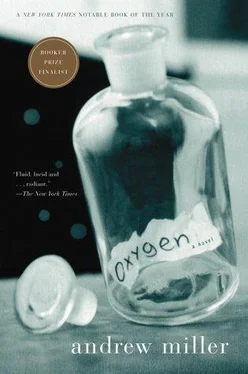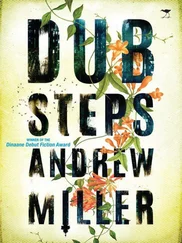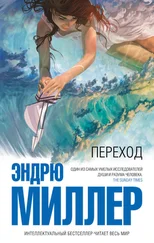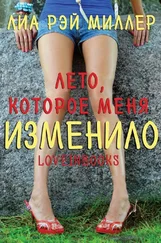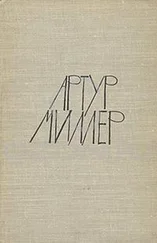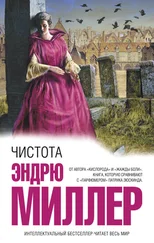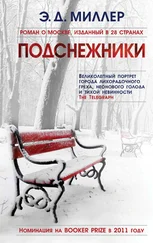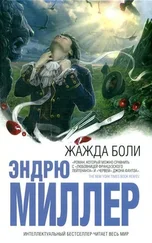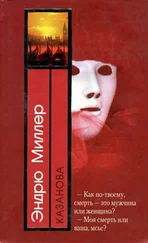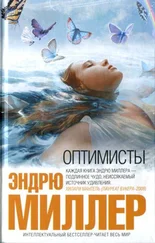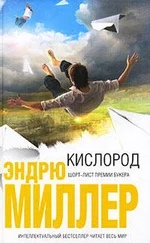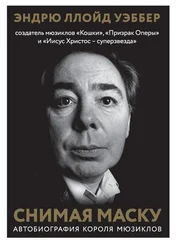‘I’ll let you read,’ he said. ‘Look in later.’
She nodded, the movement triggering off a fit of coughing, but as he moved towards her (what was he going to do ?) she waved him away and he went out, listening from the landing until she was quiet, then going slowly down the stairs, blushing from an emotion he could not quite identify.
On the wall at the bottom of the stairs, where it could not be avoided, hung the Perspex-framed double-page profile of Larry, from the US celebrity magazine PLEASE!. Made up mostly of photographs, the feature was entitled ‘America’s Favorite Valentine’ (heart-shaped point over the final i ), and showed, on the first page, an old Press Association shot of the nineteen-year-old Larry holding up his racquet to the stands after beating world number seven Eric Moberg at the French Open in 1980. Below appeared a heavier, browner Larry, leaning against a silver Jaguar in front of the Manhattan Flatiron building, dressed in the type of clothes a successful young bonds dealer might wear to the golf club, this from the time he worked for Nathan Slater’s advertising circus in New York. Then there was the inevitable still from an episode of Sun Valley, in which Larry, white-coated and waxy-faced, was plunging defibrillators on to the chest of an attractive cardiac victim. But the largest of the photographs – filling the greater part of the right-hand page – was a family portrait of Larry and Kirsty and the three-year-old Ella gathered on a couch in their ‘beautiful home in San Francisco’s North Beach district’. Larry has his arm around Kirsty, who looks cute and excited, the lucky girl who landed Sun Valley's ‘perfect gentleman’, while Ella is wedged between them, though with an expression so determinedly mournful it was not difficult to hear the pleas of the photographer (bylined as Bob Medici) – ‘Can we get the little lady to smile too? How about it, huh?’ But even at three, Ella had been a tough child to plead with, and ever since the picture had gone up, Mrs Samson, adjusting the angle of the frame or wiping the Perspex with her yellow duster, could not keep herself from muttering, ‘Bless…’ or ‘Shame…’, and furrowing her brow, as though the child’s displeasure somehow amounted to a judgment on them all.
In the kitchen Alec took from his back pocket the piece of folded paper with columns in Una’s handwriting that detailed the drugs Alice was to take, together with the times and the dosages. Antidepressants, anti-emetics, analgesics, laxatives, steroids. She had a plastic box beside the bed, its inside divided into segments – blue for the morning, orange for the afternoon and evening – but illness, fatigue, the pills themselves perhaps, had begun to create lapses, lacunae in her concentration, and on Alec’s first day down, Una, sitting beside him on the not-quite-even bench outside the summerhouse, had suggested that he discreetly oversee the filling and emptying of the box, and he had agreed immediately, eager for a chore that would not make him feel incompetent. Now he made a small tick on the list, picked up his leather satchel from the kitchen table, and went on to the terrace.
A pale half-moon hung in the blue of the twilight, and in some quarter of the sky the comet Hale-Bop, that vast event of ice and dust, was making its passage back towards the celestial equator. In the early spring he had often watched it from among the TV aerials on the roof of his flat, and had found it hard to believe that its great ellipse would not provoke some happening in the world, or many happenings – countless individual fates falling in an astral rain from the comet’s wake – but for the moment at least the sky was unexceptional, the usual faultless machine with nothing extraordinary or dangerous happening in it.
He lit the storm lantern and looped the wire handle over a metal bracket beside the kitchen doors, for though it would not be quite dark for another hour, he liked the tang of the paraffin and the companionable hiss of the filament. He intended to work. Alcohol did not agree with him and he had never learned how to smoke. Work was his refuge, and sitting in one of the old canvas chairs he tugged the manuscript, dictionaries and marker pens from the satchel and began to read, holding the script close to his glasses, struggling at first to concentrate, his mind still snared in the room above his head where his mother lay. But at last the work drew him down into the orderly double-spaced world of the text, and under his breath he sounded the words of a language he had made half his own.
In the narrow kitchen of his fourth-floor apartment on rue Delambre, László Lázár was preparing a dinner of veal escalopes ‘en papillote’. It was a recipe that called both for delicacy and good timing, so he was more irritated than alarmed when one of his dinner guests, Laurence Wylie, informed him that her husband, the painter Franklin Wylie, had brought a gun with him and was waving it about in the dining room. The escalopes, tender pink, almost translucent, were laid out on the slab of the chopping board. He was about to hit them with a mallet.
‘A gun? Where the hell does he get a gun from?’
‘From some cop he drinks with at Le Robinet. For God’s sake, László, tell him to put it away before there’s an accident. He’ll listen to you.’
She was standing in the doorway of the kitchen, wide-eyed, straight as a dancer, her hair held back from her face by a silver clasp. She was smoking: one of those cigarettes that come in white or almost white packets, and which to László seemed completely pointless.
‘Franklin listens to nobody,’ he said.
‘But what if it goes off?’
‘It won’t.’ He began to beat the first escalope. ‘It’s a fake. Or one of those old guns they neutralize and sell to collectors and nuts. There’s a place by the Bourse that has a windowful.’
‘It looks real,’ she said. ‘It’s black.’
‘Black?’ He smiled. ‘He’s just showing off, Laurence. Trying to impress Kurt. Do you want to help me in here? I need the mushrooms sliced. And four of those shallots.’
She came into the kitchen, shrugging and pouting, then lined up her rings on the worktop and took one of the big black-handled Sabatier knives, topping and tailing the first shallot with two clean strokes.
‘He’s impossible now,’ she said, beginning the familiar lament. ‘Sits in the studio all day. Does nothing. Takes tablets but won’t show me what they are. Lies to me. I don’t even know if he loves me.’
‘Of course he loves you. He couldn’t get through a single day without you. And what do you mean he’s impossible now ? He was impossible before.’
She shook her head; a teardrop broke from her skin and splashed among the onion rings. ‘I keep thinking something terrible’s going to happen. Really terrible.’
László stopped his work and hugged her, the mallet in his hand still, the knife in hers.
‘It’s so tiring,’ she said, speaking into the side of his neck. ‘I always thought that when we got older things would be easier. Clearer. But it just gets more confusing.’
‘Mother of Christ!’ cried Franklin, shuffling into the kitchen so that the room was suddenly crowded. ‘My wife is being seduced by a Hungarian invert. Unhand her, you bastard.’
László glanced at the American’s hands. ‘What have you done with it?’ he asked.
‘The Gat? Gave it to that beautiful young Aryan of yours. Any danger of a decent drink, you pinch-ass?’
‘A decent drink comes with conditions,’ said László, attempting to sound stern. ‘You know that Karol is coming tonight. Let’s just have a nice, quiet evening.’
Читать дальше
